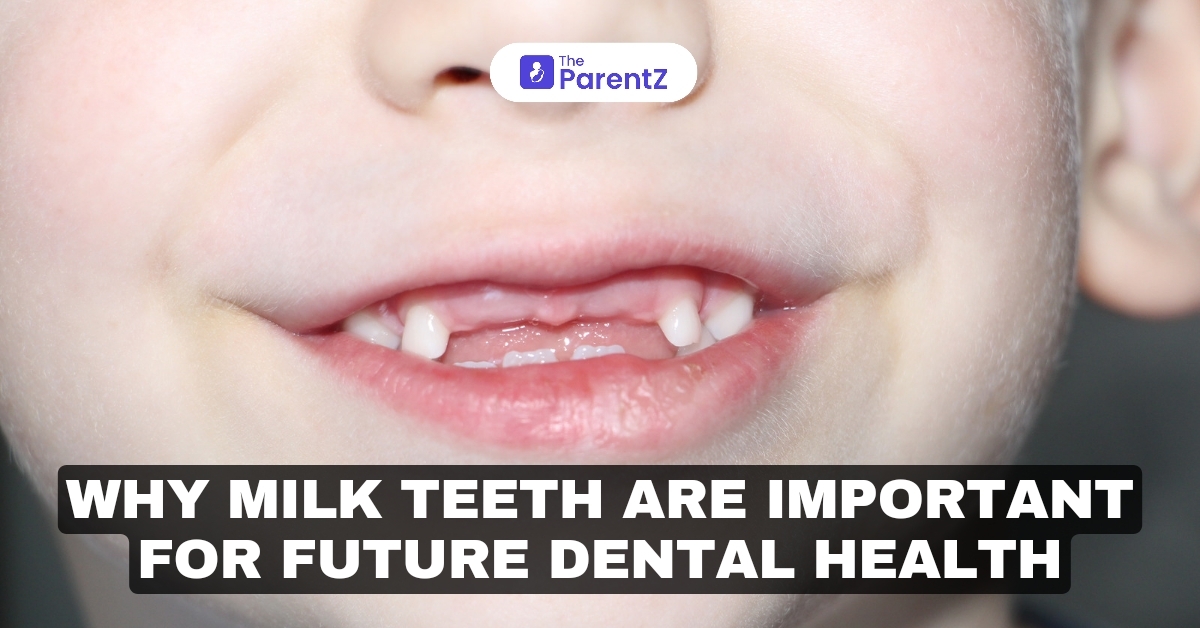Milk teeth, also known as baby teeth or deciduous teeth, are often viewed as temporary placeholders until permanent teeth arrive. However, their importance goes beyond just filling space in the gums. The health and care of milk teeth have a profound impact on the future dental health of children, shaping their oral development, speech, and jaw alignment.
What Are Milk Teeth?
Milk teeth are the first set of teeth a child develops, usually appearing between 6 months and 3 years of age. A child typically has 20 milk teeth—10 in the upper jaw and 10 in the lower jaw. These teeth are softer and smaller than permanent teeth but are essential for various functions.
Other Names for Milk Teeth:
- Deciduous Teeth
- Primary Teeth
- Baby Teeth
Key Differences Between Milk Teeth and Permanent Teeth
1. Size and Shape:
Milk teeth are smaller and more rounded compared to permanent teeth, which are larger and have more defined edges for chewing and biting.
2. Enamel Thickness:
The enamel on milk teeth is thinner making them more susceptible to decay. Permanent teeth, on the other hand, have thicker enamel, offering more protection.
3. Root Structure:
Milk teeth have shorter roots, designed to allow easier resorption (the natural process where the roots dissolve) as the permanent teeth begin to emerge.
4. Timeline of Eruption:
Milk teeth begin to appear around 6 months and typically all have emerged by the age of 3. Permanent teeth start erupting around the age of 6 and continue until early adulthood.
Importance of Milk Teeth for Future Dental Health
1. Guide for Permanent Teeth:
Milk teeth act as guides for the alignment and positioning of permanent teeth. If a baby tooth is lost prematurely, it can cause misalignment or crowding of the permanent teeth.
2. Proper Jaw Development:
Healthy milk teeth ensure proper jaw development. They help maintain the structure of the jaw, ensuring it grows in proportion with the rest of the face.
3. Speech and Chewing Functions:
Milk teeth play a significant role in the development of speech and the ability to chew food properly. Poor dental health in milk teeth can delay these milestones in a child's life.
4. Preventing Orthodontic Issues:
Taking care of milk teeth can reduce the need for orthodontic treatment later in life. Premature tooth loss or decay can cause shifts in jaw structure, leading to misaligned teeth or bite issues.
Housing of Milk Teeth
Milk teeth are housed in the gums and are designed to be shed naturally to make room for the permanent teeth beneath. This shedding process occurs when the roots of milk teeth dissolve, allowing the new teeth to push through the gums.
Problems Associated with Milk Teeth
Milk teeth, though temporary, can cause a range of issues if not properly cared for:
- Tooth Decay:
Due to the thinner enamel, milk teeth are more vulnerable to cavities. Early tooth decay can affect the health of the permanent teeth growing beneath.
- Teething Discomfort:
The eruption of milk teeth is often accompanied by pain and discomfort. Symptoms include irritability, swollen gums, drooling, and a desire to chew on objects.
- Premature Tooth Loss:
If a milk tooth is lost prematurely due to decay or injury, it can cause spacing issues, leading to crooked or crowded permanent teeth.
Why Are Milk Teeth Important for Future Dental Health?
1. Maintaining Space for Permanent Teeth:
Milk teeth maintain the necessary space for permanent teeth to grow in the correct position. If a milk tooth is lost early, it can lead to crowding or misalignment of the permanent teeth.
2. Preventing Future Dental Problems:
Good oral hygiene for milk teeth can help prevent **dental issues** like cavities and gum disease, which can affect the health of the permanent teeth and lead to more complicated dental problems in the future.
3. Promoting Overall Health:
Healthy milk teeth contribute to overall oral health, ensuring a child can eat properly, which is essential for nutrition and growth. Additionally, poor oral health in children has been linked to other health problems, including infections.
Conclusion
Milk teeth, though temporary, play a pivotal role in shaping a child's future dental health. From guiding the alignment of permanent teeth to ensuring proper jaw development, the care and maintenance of these teeth are essential. By understanding the importance of milk teeth and ensuring proper dental hygiene, parents can help lay the foundation for a lifetime of healthy smiles.









Be the first one to comment on this story.